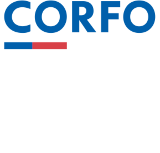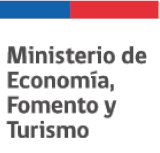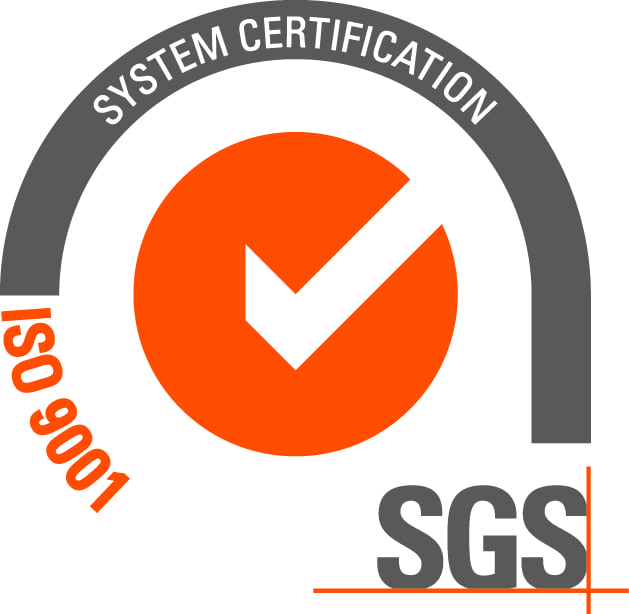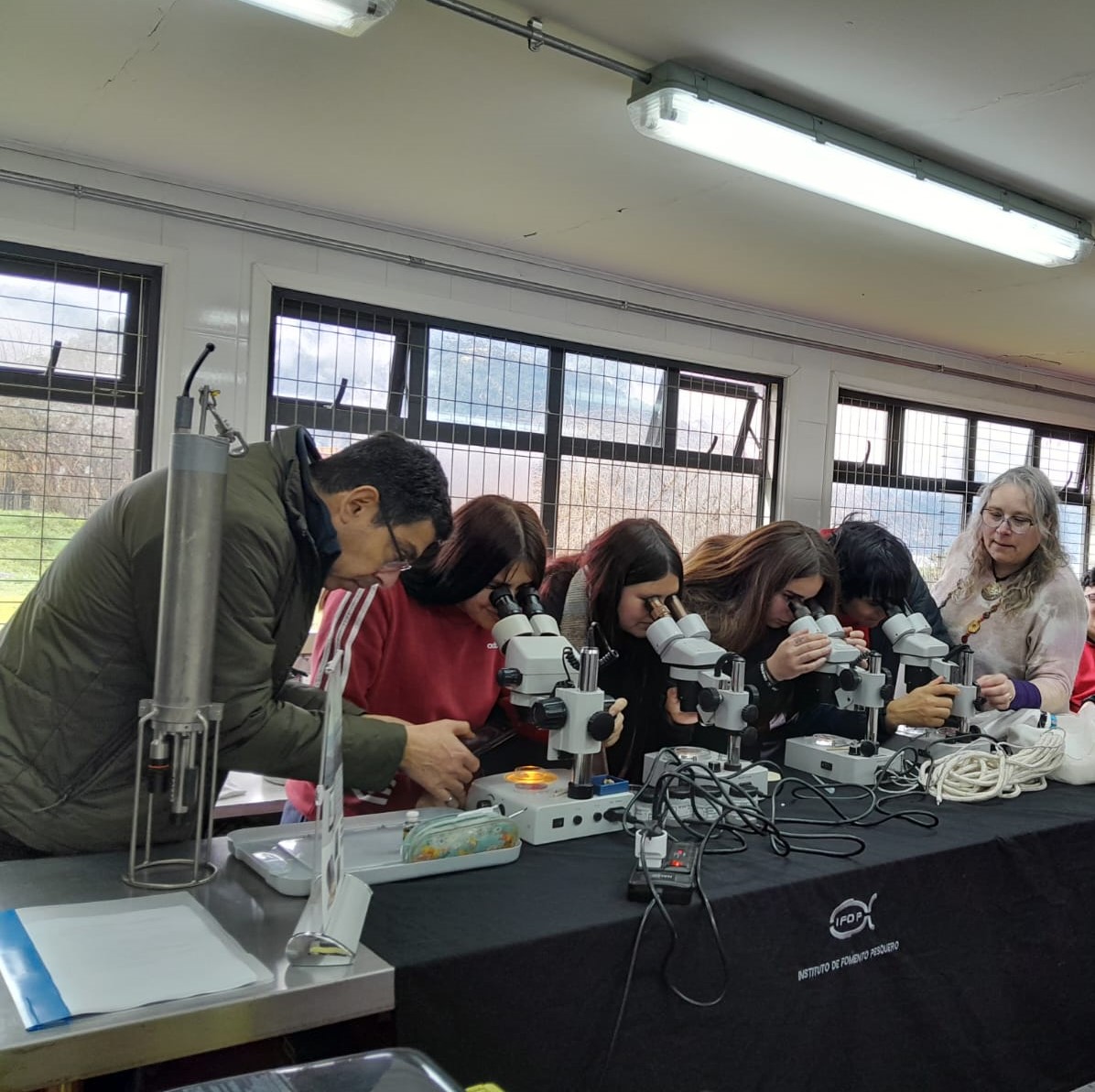
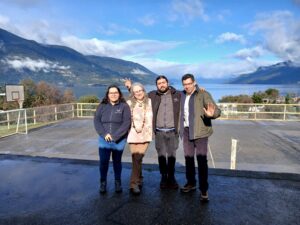 Cochamó, as part of a collaboration with the Technical Training Support Objective of the “Comprehensive Aquaculture Development Program for Artisanal Fishermen and Small-Scale Aquaculturists. Stage VIII,” a specialized mussel farming class was held for third- and fourth-year students at Juan Soler Manfredini Fronter High School in the municipality of Cochamó. The activity was organized and supervised by Sebastián Cook, a researcher from the Repopulation and Cultivation Department (DRC) of IFOP’s Aquaculture Research Division.
Cochamó, as part of a collaboration with the Technical Training Support Objective of the “Comprehensive Aquaculture Development Program for Artisanal Fishermen and Small-Scale Aquaculturists. Stage VIII,” a specialized mussel farming class was held for third- and fourth-year students at Juan Soler Manfredini Fronter High School in the municipality of Cochamó. The activity was organized and supervised by Sebastián Cook, a researcher from the Repopulation and Cultivation Department (DRC) of IFOP’s Aquaculture Research Division.
A specialized mussel farming class was also held at Piedra Azul School. The activity was aimed at third- and fourth-year students in the municipality, with the goal of introducing them to the technical and practical knowledge of mussel farming. This educational event is part of IFOP’s institutional commitments to promote community outreach and early education in aquaculture-related topics.
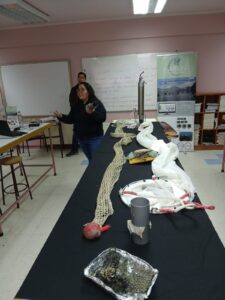 The objective of this initiative was to introduce young people to the aquaculture of the Chilean mussel (Mytilus chilensis), a strategic resource at the local and global levels. The event focused on promoting understanding of the different stages of farming, its production chain, and IFOP’s scientific role in generating technical information through tools such as the “Endemic Seed” platform. This was the main outcome of the Mussel Larval Monitoring Program, a study carried out by IFOP and led by the Environment Department of IFOP’s Aquaculture Research Division in Puerto Montt.
The objective of this initiative was to introduce young people to the aquaculture of the Chilean mussel (Mytilus chilensis), a strategic resource at the local and global levels. The event focused on promoting understanding of the different stages of farming, its production chain, and IFOP’s scientific role in generating technical information through tools such as the “Endemic Seed” platform. This was the main outcome of the Mussel Larval Monitoring Program, a study carried out by IFOP and led by the Environment Department of IFOP’s Aquaculture Research Division in Puerto Montt.
Three modules, a comprehensive overview
The activity was divided into three modules, led by professionals and specialists from the Institute:
- Cristina Stuardo, researcher with the Mussel Larval Monitoring Program, introduced the students to the objectives, history, and methodology of this program, which IFOP has been implementing for more than 13 years. His presentation included the use of specific instruments for monitoring the larval stages of mussels at the study stations and basic concepts for introducing them into mussel farming.
- José Videla, a professional from the Department of Repopulation and Farming, addressed the different phases of the productive chain in Chilean mussel aquaculture, with an emphasis on the relationship between seed collection and stocking. Through audiovisual material, he detailed the industrial and human processes involved in mussel stocking in the country.
- Macarena Herrera, a researcher at IFOP, led the third module, divided into two complementary stages. During the first stage, she instructed those present on the “Endemic Seed” platform, developed by IFOP to easily disseminate reports generated from larval monitoring. She explained how this digital tool emerged as a response to suggestions gathered through annual surveys, with the aim of improving access to information for users and the community. The students participated in a hands-on activity that allowed them to navigate the platform, explore its functions, and familiarize themselves with its content.
The second stage addressed larval and post-larval identification of mussels.
There, students were theoretically introduced to the main criteria for identifying mussel larvae and spawn. Using real samples, they were taught how to differentiate the three commercially important species by morphological characteristics and developmental stages, including the observation of the “eyespot” as a distinctive feature at the crucial developmental stage where they compete to attach to the substrate. In the case of aquaculture, the collectors act as an attractive artificial substrate for the target species of this activity, the genus Mytilus.
Commitment to Science Education
The workshops represented a valuable learning space for students from Cochamó and Piedra Azul, strengthening the link between science and the environment. Through these activities, IFOP reaffirms its commitment to education, the training of future generations in marine science, and the democratization of scientific knowledge in coastal communities in southern Chile.
Press related links:


